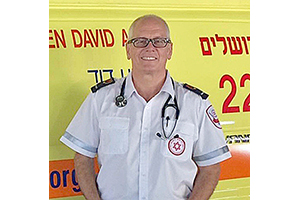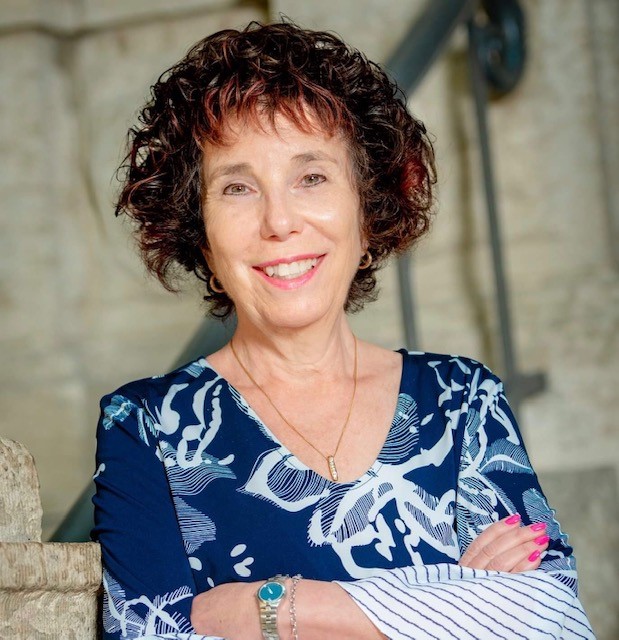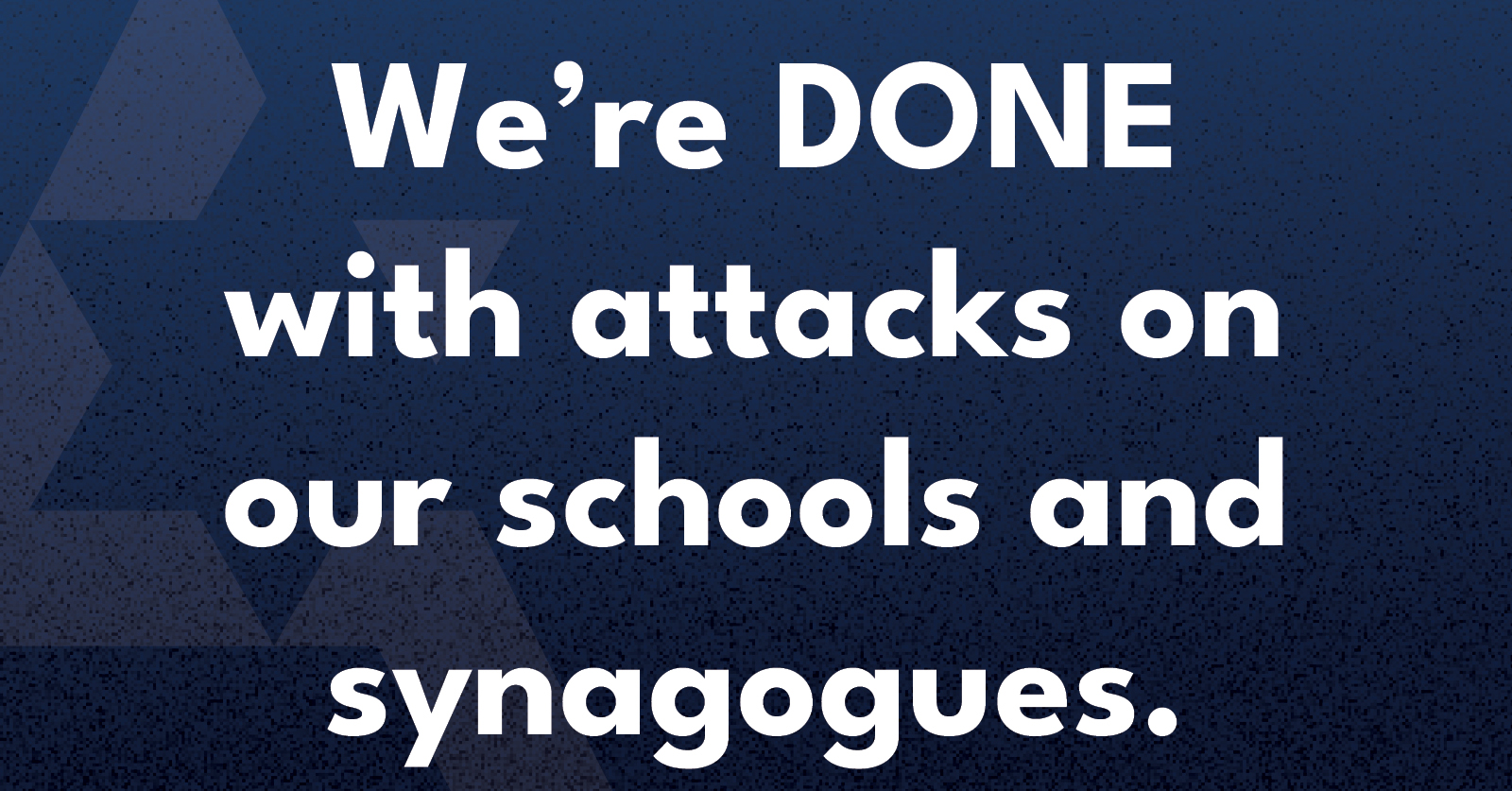Local News
Lifesaving Israeli training coming to Winnipeg

By REBECA KUROPATWA
In 2016, when Magen David Adom (MDA) introduced the Life Guardian Program, thousands of Israelis with no medical training jumped at the opportunity to participate.
The Life Guardian Program added another layer of responders to emergencies to potentially save more lives with faster response time, by certifying or recertifying everyday Israeli citizens. Many participants had learned CPR as part of their army service or teacher certification, and others took first-aid basics for the first time.
When an emergency call is taken at the MDA dispatch centre, the computer system locates and contacts the closest Life Guardians and asks them to help save the life of a person in their close proximity, while also dispatching the closest medic or paramedic.
With an eye on the rise in anti-Semitic attacks in North America, Canadian Magen David Adom (CMDA) has come out with a training program that aims to give everyday people the know-how to help if they are in proximity to the site of a mass casualty incident.
The training is designed for anyone, no matter how much or how little medical training they possess, to give people the most basic tools to help save lives. It is called “The First 7 Minutes” and will soon be making its debut in Winnipeg.
The first training session is scheduled to take place on Feb 5th at 7 pm in the Rady JCC’s MPR (multipurpose room) and is being presented by CMDA and the Rady JCC. The special guest speaker will be MDA paramedic Don Sharpe, from Calgary who will train attendees and award certificates of training completion.
Sharpe has been a paramedic in Calgary for nearly 40 years. Four years ago, he had the fortune of training with MDA in Israel along with a group of other Canadian doctors.
“I’ve seen first-hand how an ambulance service should be run, and I think there are a lot of lessons there for us here in Canada – not just the actual frontline ambulance portion, but also for integration with hospital service, air service, and the Life Guardian Program,” said Sharpe.
“I tried several times to get that off the ground here, unsuccessfully, because, I think the community and cultural cohesion that seems to exist in Israel – we don’t have here.”
Sharpe grew up in the Jewish community of south west Calgary, though he is a Mormon by faith.
“As I grew older and started to watch what was happening with the rise of anti-Semitism and the violence against Jewish people and the State of Israel, I came to believe that Jews were precious,” said Sharpe.
“I wanted to work with a group that supported, not just the Jewish people, but also the State of Israel. So, when the opportunity came up…when I saw a presentation of a couple of doctors who had gone to Israel and worked with MDA, and they said they’d learned how to treat people on a moving ambulance…I was like, ‘Well, I can do that!’ They learned how to help people out in the field…and, I said, ‘I can do that!’”
Sharpe was especially impressed with MDA’s dispatch centre, which not only takes calls, but also provides lifesaving guidance over the phone until help arrives.
“We have so many people here now that, when an emergency occurs, they don’t know what to do,” said Sharpe. “The time I spent in MDA’s dispatch was really eye opening.
“When I first started in Canada, people would call 911 and we’d basically just take the call, start the ambulance, and hang up the phone.
“But, MDA’s idea that we can help people before the ambulance arrives is just brilliant. It makes such a huge difference.
“And now, to be able to teach groups of people, through “the First 7 Minutes” training, is perfect…groups of lay people on how to help a large number of people, casualties…in situations where everyone’s panicking. With just a little bit of training and some right thinking…there is now the idea that you aren’t powerless, that you can do something, you can cope. That little bit of training makes so much difference.”
Through “the First 7 Minutes” training, the first thing you will learn about is how to wrap your head around the possibility that you might be in a situation where 10 or 15 people are suddenly hurt and in need of help. The training will begin with a brief talk in order to best focus as much time as possible on practicing simulated mass casualty events.
“We start with something like a wall collapse, something without a bad guy, something that’s an accident rather than patients or blood,” said Sharpe. “This patient has a broken arm, this person’s unconscious, this person is bleeding from an abdominal wound…we go through determining who is in charge, how we know that person is in charge, where that person should stand and what s/he should do…what everyone else should do…and we also want to be alert for those people who are so freaked out by this that they don’t want to help at all.
“For those people, who might say they don’t like blood, I say, ‘Listen, there’s an important job for you. We need you to keep the people who aren’t hurt calm and look after them.’ I go, ‘Can you do that?’ And they say, ‘Oh yeah, I can do that.’”
The second simulated scenario might include an assailant. The third simulation will depend on the attendees and Sharpe’s observations on what should be further practiced.
“By the end of the training, you will walk away with some very basic understanding of how to work together as a team,” said Sharpe. “No matter who’s there, everybody can help a little bit. And, you know, if a situation ever truly arises where we have a large number of people hurt, you will remember the basics.
“You may not be good at it. Nobody ever gets good at it unless you spend the time I do treating patients, but you’ll be comfortable enough to say, ‘We can handle this and help people. We can take care of ourselves.’”
At the end, participants will receive a certificate. “I love the idea that people have to pay $10 for the training, because sometimes, when people just wander in and out and it’s free, they aren’t really paying attention,” said Sharpe. “Now that they paid, they’ll want to get their money’s worth, so they’ll have a real commitment to being there and learning this.
“I think communities need to learn to work together and to depend on themselves. And, it’s not only a good way to save lives in an emergency. It’s also a way to simply teach people to work together, so that, when they look at each other, they know they can depend on each other in an emergency. They’re well trained.”
CMDA and Sharpe are bringing the training to schools, synagogues, churches, and more.
While the topic is serious, you can expect Sharpe to include some humour along the way. “It can be a good time,” he said. “We have fun. People will walk away thinking, ‘I thought this was going to be pretty hard, but it was kind of fun.’”
Local News
Cheryl Hirsch Katz, Jewish Child and Family Service’s longest serving staffer, set to retire at end of the month

By MYRON LOVE “I loved working at Jewish Child and Family Service,” says Cheryl Hirsh Katz, who is due to retire at the end of June. “I have always appreciated the warm and welcoming atmosphere here. I feel that the people working here are my extended family. I am going to miss my colleagues”.
“I have derived great satisfaction over the years to have been able to help many people in our community of all ages through my work at JCFS,” she continues.
After 44 years at the agency, Katz, the longest-serving member of the staff, was given an appreciative send-off at the JCFS’s recent (June 23) Annual General Meeting at the Shaarey Zedek Synagogue.
The daughter of Art and Bess Hirsh, Cheryl grew up in Garden City. She attended Peretz School, then Jefferson Junior High and Garden City Collegiate. She joined the staff of JCFS in 1981, shortly after receiving her Bachelor of Social Work degree.
She earned an MSW in 1990.
“I chose to become a social worker,” she recalls, “because I always wanted to be able to help people.”
Katz was originally hired by JCFS to work with newcomers. After a couple of years, she was given responsibility for looking after the needs of older adults.
“I really enjoyed working in older adult services,” she says. “That is where I spent the bulk of my time at JCFS.”
After ten years as a case worker, she was promoted to a supervisory role. Later, she was also given responsibility for mental health and addictions programming and settlement services, while keeping the older adult files under her purview.
“As a supervisor, I wasn’t directly involved with individual clients,” she points out. “I was more involved with programming. Among the programs for seniors we organized were – for example – sessions on elder abuse, digital storytelling and memory loss.”
She notes that one of the trends she has seen over the last 44 years is that people are living longer and living in their homes longer. A lot more of our clients are living well into their 90s,” she observes. “We have had to continually expand our staff and the services we provide in order to accommodate the growing demands of an aging population.”
She also spoke of the mental health needs of seniors and aging Holocaust survivors.
She says that she has mixed feelings about leaving JCFS. “After so many years working full time, I am going to have to create a new routine,” she comments.
She notes that, now that she is retired, she will have more time to spend with her parents – who are in their 90s.
And then, there are the two dogs to look after. “I will have time now to try new activities,” she says. “ I might learn to play mah-jong.”
She speaks about maybe doing some traveling – although her husband, Murray, is still working full time.
(She and Murray have one daughter, Farah.)
“Retirement may also include some volunteering,” she adds.
It is quite likely, she will be continuing her association with JCFS but in a volunteer capacity.
Local News
Gray Academy students shine in provincial, national debating competitions

By MYRON LOVE It has been another good year for Gray Academy’s high school students who participated in provincial and national debating competitions. The best results were recorded by Grade 9 student Noa Mednikov, who finished fourth overall nationally, fourth in interpretive reading, and fifth in persuasive speaking at the junior National Public Speaking Championship in early May in Vancouver.
Last October, in the Junior Provincial British Parliamentary Championship – which was held at St. John’s-Ravenscourt – Noa and her partner, Raya Braunstein, finished third as a team while Raya placed third in individual debating.
Their fellow Grade 9 student Maxim Moscalenkov tied for first in persuasive speaking in Vancouver, while the Gray Academy team of Gabe Tapper and Aaron Koplovich finished fifth. Aaron also finished fifth in his individual debate.
Earlier, in March, Maxim finished fifth in the Provincial Juniors debating competition, which was held at Balmoral Hall He and his debate partner, Nate Shenkarow, finished seventh among the teams entered. Last November, he and partner, Ethan Tenenbein, finished seventh in the Junior Prepared Tournament – just behind the Gray Academy team of Nate Shenkarow and Jack Kay.
At the senior high level in that competition, the team of Jacob Tenenbein and Jonah Novoseller finished fourth and Jacob was recognized as fifth best in an individual capacity. Jonah and Jacob also paired up to win the Asper Cup, which was held at their home school.
Jacob represented Manitoba at the Junior National Speech Championship in Vancouver in May and, last October, he and Grade 12 Gray Academy students Julie Krozkin and Daniel Bokser represented Canada at an international debating tournament in Bermuda.
Gray Academy’s debating program was introduced by Linda Martin in 2003. She also led the debating teams at Balmoral Hall. In 2011, Martin was succeeded by Gray Academy high school English teacher Andrew Kaplan.
“Andrew has done a wonderful job with the debating program” says Martin, who has a debating trophy at Gray Academy named in her honour, as well as a provincial trophy for best individual junior debater. “Over the years, Gray Academy students have done very well in many local, national and international competitions,” she adds.
About three weeks ago, this writer had the opportunity to sit down with Andrew Kaplan and six of the school’s top debaters while they discussed the benefits of learning how to debate. According to Noah Strauss – who competed in the Junior Provincials at Balmoral Hall in March, public speaking leaves him with a feeling of accomplishment.
“It’s a good skill set to have,” he observes. “It builds confidence.”
“A benefit of being able to debate is that you learn how to convince people that you know what you are talking about,” adds Maxim Moscolenkov.
Raya Braunstein notes that being able to debate is a skill that she expects to be helpful in many university courses which she may choose to take.
As Andrew Kaplan notes, the ability to express yourself has a great impact in whatever career you choose to pursue.
He points out that debating is compulsory at Gray Academy for all Grade 7 and 8 students – and students can continue debating as an option in the higher grades
Of course, competitive debating is not for everyone. For those students who opt to take that path, the journey begins with internal school debate competition – with the top debating teams and individuals qualifying for local tournaments and – potentially – beyond.
Andrew Kaplan reports that a small number of high schools in Winnipeg and southern Manitoba have active debating programs – including St. Johns Ravenscourt, St. Paul’s High School, St. Mary’s Academy, Garden City and Maples Collegiates in the Seven Oaks School Division, St. Maurice (a Catholic School), as well as Morden Collegiate and Dasmesh, a Sikh private school.
Kaplan expresses his appreciation to the Asper Foundation and an endowment spearheaded by the Kives Family for providing funding for the Gray Academy debating program – as well as the Andrew Slough Foundation – which was established by his friends in memory of the outstanding former Ravenscourt student debater and lawyer who passed away suddenly two years ago at the still young age of 38.
I am confident that our Jewish community can look forward to the continued success of Gray Academy’s star debaters and to the continual emergence of future stars as the times goes by.
Local News
Antisemitism has crept into grade school in Canada

Antisemitism in Canada has moved beyond protests and politics; it is now entering classrooms and altering how Jewish children see themselves functioning within them.
A a university student I have observed the experience of my younger brother in grade eight as a Jewish student. Over the past few months, his school has been at the center of several deeply troubling incidents that have made him feel unsafe in our parks, community, and even his school. Swastikas were drawn around the community, in parks and ponds. Additionally, an older man, who claims to be a pro-Palestinian influencer, stood outside his predominantly Jewish school wearing a keffiyeh, filming a video which then circulated between students on TikTok.
This same man later showed up to our local Jewish community center in keffiyeh to allegedly watch his son play basketball where my brother and many of his classmates go for their lessons, basketball games, and Jewish events. These moments made him and his peers feel watched and targeted just for being Jewish. Local political representatives condemned the incidents and raised awareness about antisemitism, but the fear among students didn’t go away. The feeling of being targeted for simply existing has been taught to my brother, something my parents had tried their hardest to escape from.
Most recently, my brother was chosen to represent his school at a regional science fair. When one of the judges arrived wearing a keffiyeh, he froze. For many, including my brother after the incidents he has faced, the keffiyeh represents a political message. But even more so for my younger brother, it is tied to the fear and intimidation he had already experienced. He felt nervous, distracted, and unsure of how to act.
This is not about silencing political expression. It is about a child who came to share his ideas and left feeling uncertain and afraid. It is about the atmosphere forming in Canadian schools, where Jewish students are being made to feel targeted and unwelcome.
His school made an effort to address the incidents, but the impact is lasting. Posts on social media, much can be very vague at times about inclusion cannot fully undo the feeling of being singled out. A kind word from a teacher does not erase the fear that builds when threats are left unspoken but deeply felt.
I am writing this as a sister who watched her younger brother lose a moment that should have been filled with confidence and pride. He deserved to feel safe. So do all Jewish students in this country.
Moving forward, schools must take concrete steps to protect all students. Antisemitism cannot only be addressed when it becomes violent or overt. It must also be recognized when it appears as intimidation, symbolic targeting, or political messaging that creates fear among students. Children should never have to question whether they are safe in their own classrooms or community spaces.
Events that are meant to support and celebrate students must remain focused on them. Individuals who feel the need to bring political symbols or messages into school grounds or children’s events should not be welcomed in those spaces. Schools must make it clear that their environments exist to support learning, safety, and inclusion, not to host agendas that can intimidate or isolate students.
Administrators and educators must develop clear guidelines for identifying and responding to antisemitic behavior in all its forms. This includes strengthening security measures, offering ongoing staff training, and engaging directly with Jewish families to understand their concerns. Inclusion is not a one-time statement. It is a responsibility that must be reflected in everyday decisions and actions. No child should ever feel unsafe or unwelcome because of their identity.
The author is a Campus Media Fellow with HonestReporting Canada and Allied Voices for Israel who lives in Toronto.
